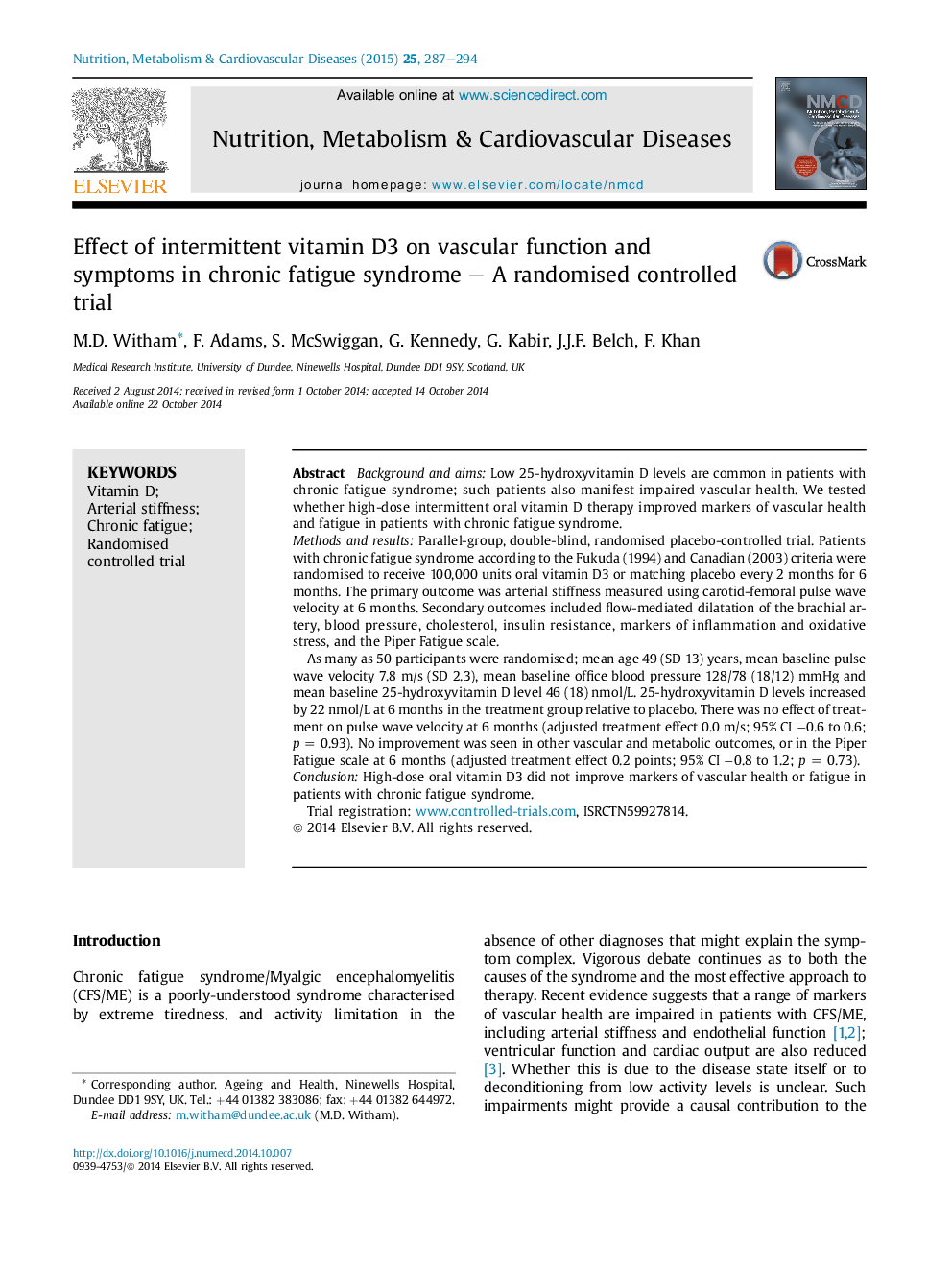| Article ID | Journal | Published Year | Pages | File Type |
|---|---|---|---|---|
| 3001890 | Nutrition, Metabolism and Cardiovascular Diseases | 2015 | 8 Pages |
•We randomised 50 patients with CFS/ME to receive six months of intermittent high-dose vitamin D or placebo.•Vitamin D did not improve pulse-wave velocity or flow-mediated dilatation of the brachial artery compared to placebo.•Vitamin D did not improve markers of oxidative stress or inflammation compared to placebo.•Vitamin D did not improve symptoms of fatigue compared to placebo.
Background and aimsLow 25-hydroxyvitamin D levels are common in patients with chronic fatigue syndrome; such patients also manifest impaired vascular health. We tested whether high-dose intermittent oral vitamin D therapy improved markers of vascular health and fatigue in patients with chronic fatigue syndrome.Methods and resultsParallel-group, double-blind, randomised placebo-controlled trial. Patients with chronic fatigue syndrome according to the Fukuda (1994) and Canadian (2003) criteria were randomised to receive 100,000 units oral vitamin D3 or matching placebo every 2 months for 6 months. The primary outcome was arterial stiffness measured using carotid-femoral pulse wave velocity at 6 months. Secondary outcomes included flow-mediated dilatation of the brachial artery, blood pressure, cholesterol, insulin resistance, markers of inflammation and oxidative stress, and the Piper Fatigue scale.As many as 50 participants were randomised; mean age 49 (SD 13) years, mean baseline pulse wave velocity 7.8 m/s (SD 2.3), mean baseline office blood pressure 128/78 (18/12) mmHg and mean baseline 25-hydroxyvitamin D level 46 (18) nmol/L. 25-hydroxyvitamin D levels increased by 22 nmol/L at 6 months in the treatment group relative to placebo. There was no effect of treatment on pulse wave velocity at 6 months (adjusted treatment effect 0.0 m/s; 95% CI −0.6 to 0.6; p = 0.93). No improvement was seen in other vascular and metabolic outcomes, or in the Piper Fatigue scale at 6 months (adjusted treatment effect 0.2 points; 95% CI −0.8 to 1.2; p = 0.73).ConclusionHigh-dose oral vitamin D3 did not improve markers of vascular health or fatigue in patients with chronic fatigue syndrome.Trial registration: www.controlled-trials.com, ISRCTN59927814.
